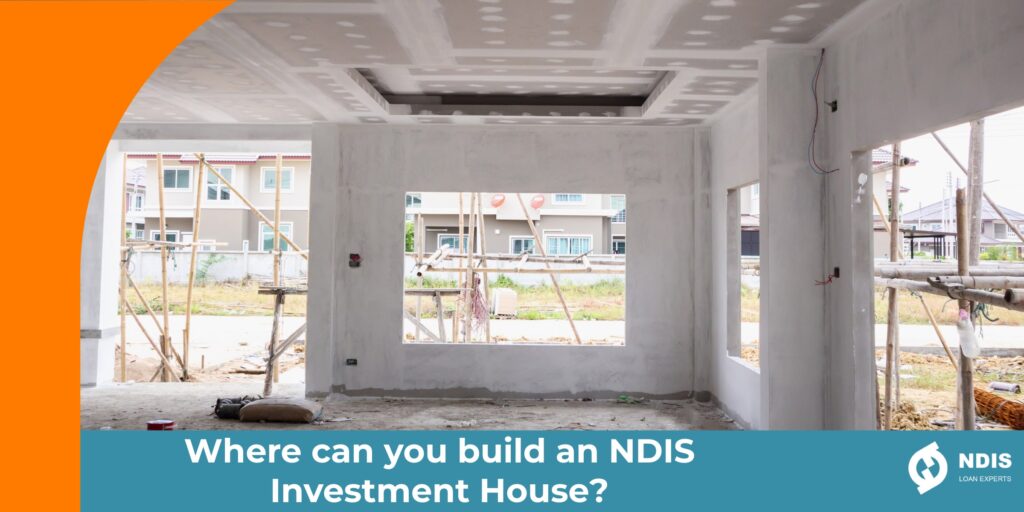If you’re thinking of investing in the National Disability Insurance Scheme (NDIS) property market, you might be wondering where to build your NDIS investment house.
The answer lies in understanding the demand and supply of the NDIS property landscape. We explore these dynamics and other factors that make an area attractive for NDIS participants to help you identify the best locations to build.
Can you build an NDIS home in my location?
SDA housing can be built in any location in Australia, provided that the land is zoned appropriately for the construction of residential or commercial properties.
However, if you plan to build an NDIS investment house, there are other things to think about besides zoning. There are vital factors to consider to increase the likelihood of seeing solid returns on your investment.
Importance of demand and supply
To put it simply, the goal is to build a suitable house designed for a particular type of disability in a location where there is a limited supply. This can increase the demand for the property and ensure a consistent rental income.
Analysing the Specialist Disability Accommodation (SDA) demand data
The NDIS provides SDA demand data and SDA quarterly reports that can assist property investors in identifying areas with the highest demand for SDA properties.
How to access and review SDA demand data
Visit the SDA Demand Data page: Access the SDA Demand data on the NDIS website.
Identify your target region: Determine the geographical areas you’re most interested in for your SDA investment. This could be based on your existing property portfolio, your familiarity with specific regions, or other factors that align with your investment strategy.
Analyse regional demand: Filter the data by your target regions and focus on the need for different SDA categories within these areas. This will help you identify the regions with the highest demand for SDA properties.
SDA quarterly reports
These reports provide additional analysis of the SDA data, including; supply market overview, location, design category, and SDA type. SDA property types include:
- Apartments: Self-contained units that are part of a larger residential building.
- Duplexes, villas, and townhouses: Separate but semi-attached properties within a single land title or strata-titled area. This also includes stand-alone villas or granny flats.
- Houses: Detached low-rise buildings with garden or courtyard areas.
- Group homes: Houses that have 4 or 5 residents.

Other factors to consider when building SDA dwellings
When choosing a location to build an SDA investment property, several factors can make the property more appealing to NDIS participants.
Proximity to public transport
People with disability often rely on public transportation to get around, so it’s essential to choose a location easily accessible to train or bus stations. Being close to public transport can also make it more convenient for tenants to attend appointments or participate in social activities.
Access to local amenities
Easy access to essential amenities such as supermarkets, healthcare facilities, and parks is crucial for people with disability. A property near these amenities can be more desirable to potential tenants, as it can save them time and make their daily lives easier.
Availability of support services
NDIS participants may require various support services, such as therapy or personal care. Having support services nearby can make tenants feel more secure and provide them with the help they need to live independently.
Suburb profile
The safety and overall quality of the neighbourhood is also an important consideration when choosing a location for an SDA investment property. A property in a safe, well-maintained community with a low crime rate can be more attractive to potential tenants, as it can provide them with a sense of security and peace of mind.
How NDIS Loan Experts can help
If you’re unsure where to start when looking for the best location to build your NDIS investment property, seeking professional help can be a smart decision. Our team has extensive knowledge of the NDIS property market and can help you identify high-demand areas for your investment. We can also assist you with the financing process and provide valuable advice on building a successful investment strategy. Contact us today.


